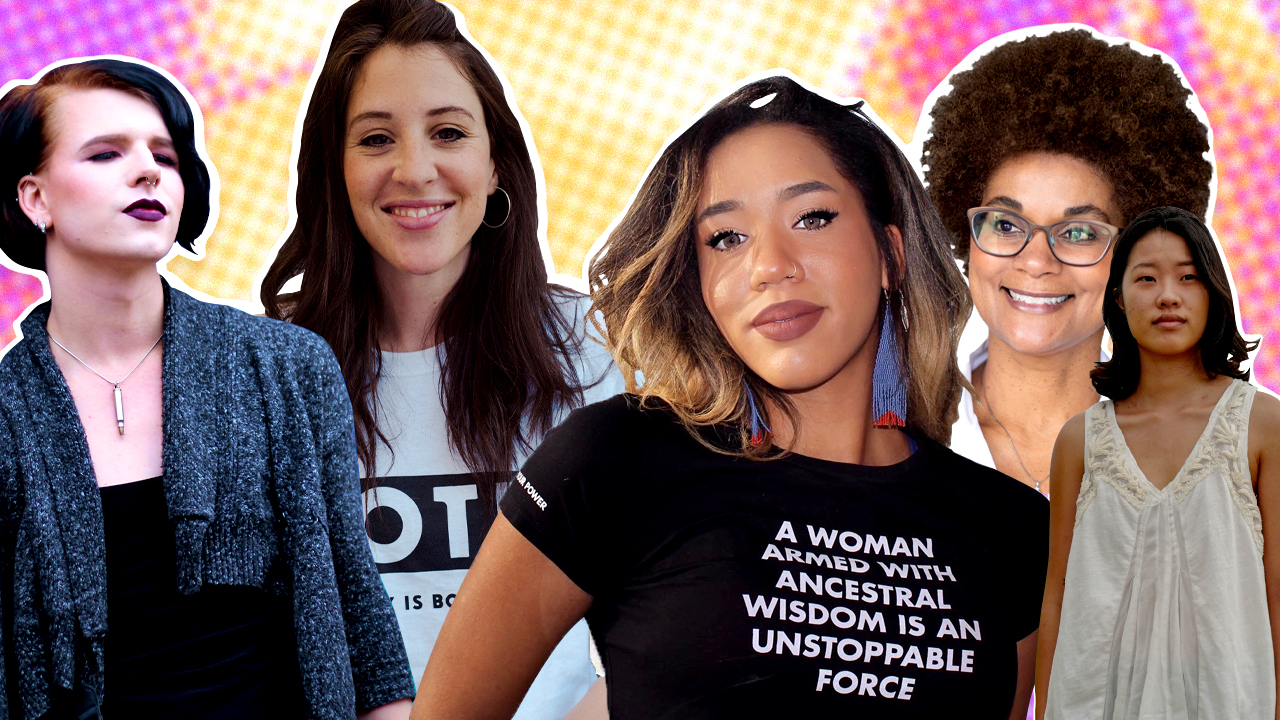20 Women on Whether We Still Need IWD in 2020
It's a debate that rages every March 8: Some argue we've already achieved equality, while others point out that the fight has not truly begun until it acknowledges its lack of intersectionality. Do we still need International Women's Day in 2020? Here, 20 people who identify as women weigh in
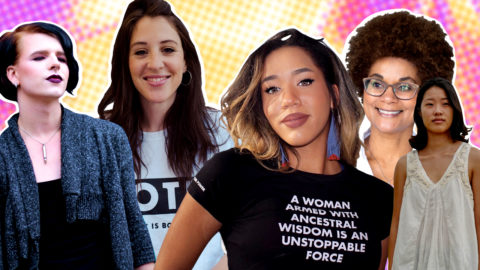
While it goes without saying that the work to recognize and provide women of all backgrounds a platform should be a daily effort, this becomes a particularly louder conversation each year on International Women’s Day (March 8). Since its inception in 1910 by German activist Clara Zetkin as a date to honour working women and those who have broken political and social boundaries, IWD has evolved in many parts of the world in different ways, whether in the form of celebration or protest. In many ways, its relevance remains strong in its unity and advocacy. Though, in others, it remains limited, exclusive and even capitalistic. The world has a long way to go to equality, but what about IWD?
In honour of International Women’s Day 2020, we decided to question the impact of the occasion, and spoke to 20 notable women across industry and around the country about how they feel it’s made an impression and where, if it all, it’s still missing the mark.
Susan Aglukark, Inuk singer/songwriter
“IWD is an opportunity to celebrate women from all walks of life and careers; I learn so many new stories of incredible women on IWD and it gives me new determination to carry on in my own work. We think we know one thing about a person and once we hear her story we take away from it something we can use in our own lives.
“I think we need an international platform that allows all women from all areas of socio-economic and cultural backgrounds to access these stories to encourage, build up and inspire more women in their careers and lives of choice.”
Maydianne Andrade, ecologist, University of Toronto Scarborough vice dean of faculty affairs and equity
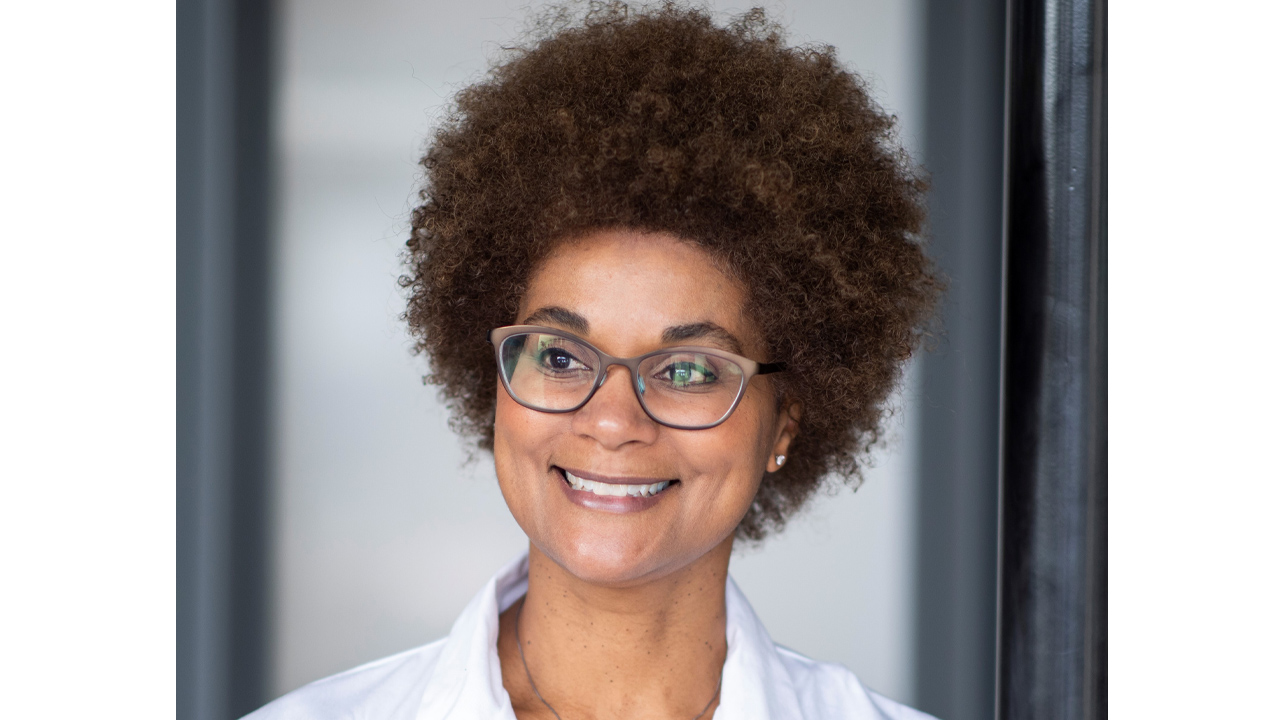
“It is critical to highlight the challenges that still exist for women worldwide, and the international scope of this day is an important part of reaching that goal. The nature of the challenges for women are varied and broad, with basic human rights a high priority in many parts of the world where women are treated in ways that allow for casual and systematic violence and deprivation. In other parts of the world, the violence is more cryptic and perhaps harder to recognize, even though, as #MeToo shows, it may also be pervasive.
“IWD achieves visibility and education about these issues, but also highlights the positive side, that of strong women worldwide, together with their allies, working for change. What is often missing, however, is engagement by and commitment from the leadership of nations, corporations, agencies and all spheres that affect human lives. Various organizations and individuals are working to hold leadership to account. It is not always successful, but IWD, by coordinating worldwide efforts in a single day, can highlight the broad support for change.”
Taylor Bowman, women’s rights activist
“I am a full-status Indian in the eyes of the Canadian government (Sayisi Dene First Nation), but I recognize my privilege and that I am white-passing. However, visibly Indigenous women in Canada are more likely to experience domestic abuse, addiction, trauma, and being murdered or declared missing than Caucasian women. Women are not equal. Even within our own country, women in northern and rural regions often lack access to necessary reproductive healthcare. Women are raped, and the onus is on us to prove that we aren’t sluts, that we weren’t ‘asking for it.’ We’re forced to try and prove that we were violated. We’re forced to prove that we aren’t lying, and we’ve been forced into silence. Now, we’re being heard and this day is important because despite being heard, we’re still just ‘doing it for attention.’
“IWD is a time to recognize the power and struggles of all women in our society and analyze how we all can do better. Moving forward, we need to listen and not dismiss. We need to be open, and that goes for both men and women.”
Larissa Crawford, founder and managing director of Future Ancestors
“I have a lot of gratitude for how I grew up, in a matriarchal family and culture. For many Indigenous Peoples across Turtle Island, the celebration of womxn as leaders, as life-givers, is ingrained in our earliest teachings and stories. In pre-settler society, many of our ancestors held ways of knowing where the respect of womxn and two-spirited people was as fundamental as eating or breathing, and many of us try to honour that way of life now. However, with settler-colonial contact came a model of patriarchy that has insidiously shaped the society we partake in today. IWD serves a valuable purpose in this context, especially for those who don’t feel connected to a culture or way of knowing that inherently positions womxn with power and value.
“Especially now, in the midst of mass public mobilization for Indigenous sovereignty and climate justice, we should seek to understand the deep connections that run between how we treat the land and how we treat womxn. That responsibility lies on anyone who claims to celebrate IWD to understand what that actually means as we occupy Indigenous lands and in an age of looming climate change realities. Why are thousands more Canadians so much more comfortable to follow the lead of Greta Thunberg, but not Ta’Kaiya Blaney? IWD must move beyond a mutual admiration congregation towards creating space to be critical of one another: to be critical of who holds privilege, who benefits from another’s oppression, who is complacent, who is not getting their due recognition. And there are many, many people who are advancing IWD exactly in that direction. The question then becomes, are we willing to listen?”
Teara Fraser, CEO of Iskwew Air
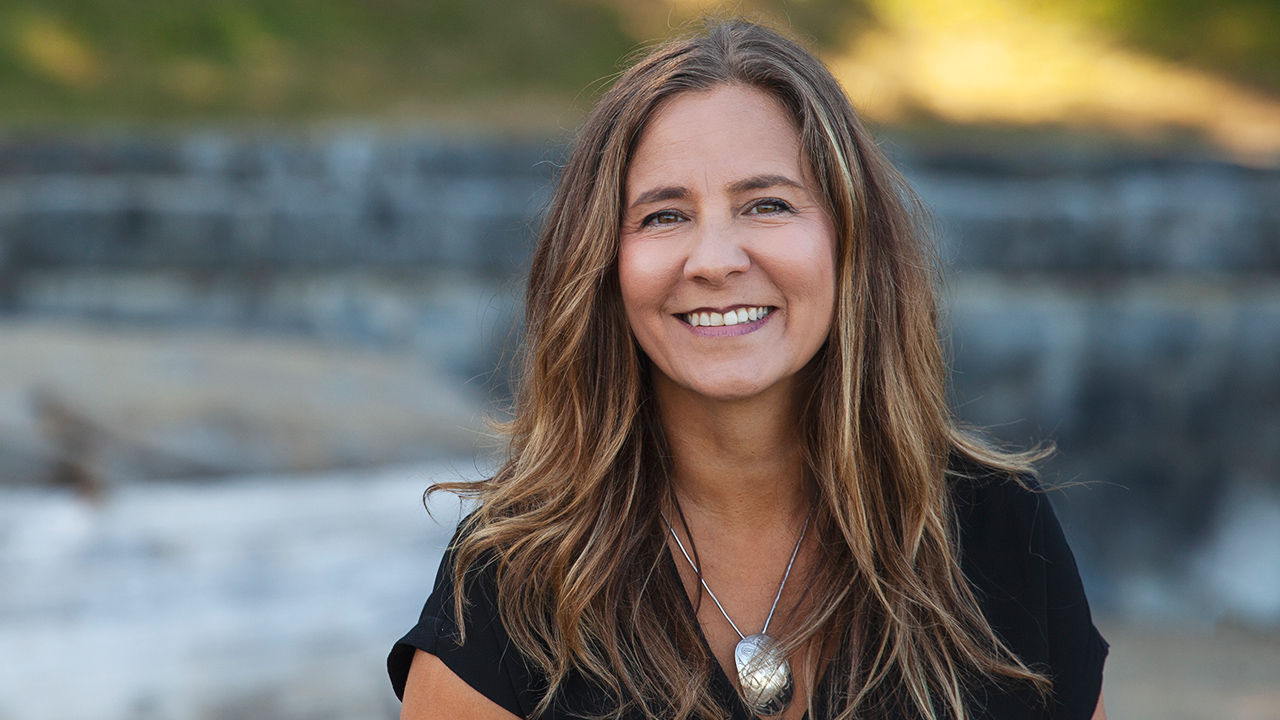
“Raymonde de Laroche became the world’s first female licenced pilot on March 8, 1910. One year ago, I chose March 8 to announce the launch of Iskwew Air because of the day’s significance. In fact, Iskwew (ISS-KWAY-YO) is a Cree word for woman. The name was chosen as an act of reclamation—of womanhood, matriarchal leadership and language.
“The wisdom of women needs to be amplified, honoured and celebrated each and every day. We need to move from dialogue into real action and rebuild systems that work for all peoples.”
Iman Grewal, TIFF programmer, mental health advocate
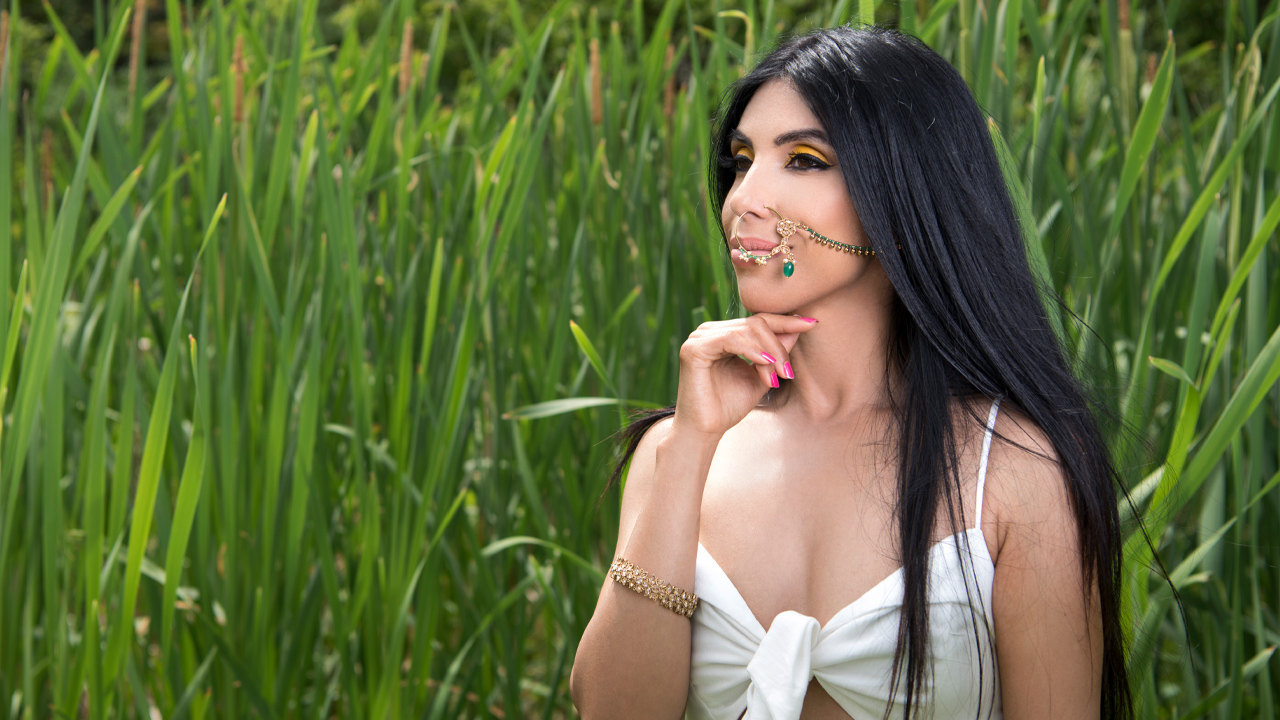
“This day gives me a chance to reflect on the incredible women in my life and further reminds me of my responsibility as someone who identifies as a woman, that I must always speak up against the mistreatment of women everywhere. This day reminds me to take more time to mentor my younger sisters and help create spaces where they feel supported and uplifted.
“More than anything, this is an occasion to shed light on the oppression and injustice our sisters face. Each year’s IWD has the ability to leave more of an impact than ever before in the age of social media, which gives us a larger platform where we can focus on putting out a positive message and building a sisterhood where IWD can exist and be accessible every day.”
Nelu Handa, actor, comedian, writer, Yas Kween producer
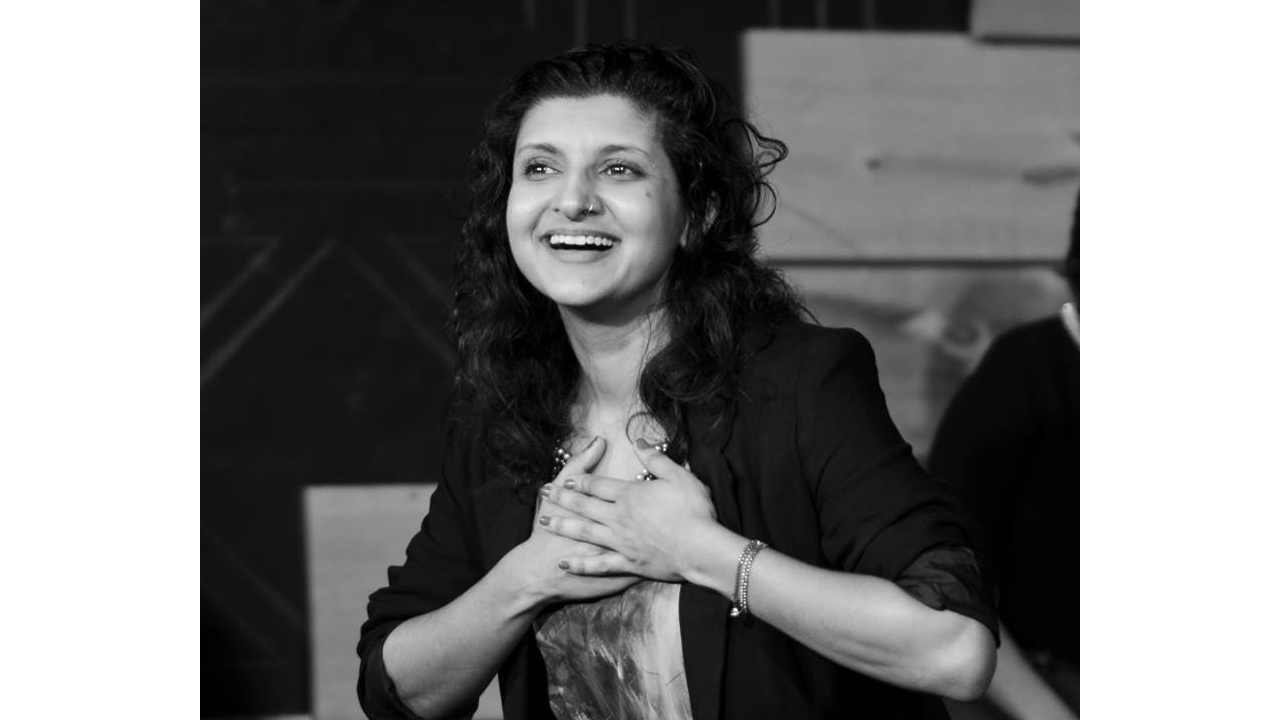
“Our culture shifts rapidly and it’s important that womxn feel compelled to empower themselves. You have to feel it on a personal level to know that you can. So the more we can be a resource for each other and build community, the better. This patriarchy isn’t gonna smash itself.
“We may be making these efforts all year, but it helps to have a razzle dazzle day to cut through the clutter. Perhaps what IWD is missing is a mascot, like how Santa unites the world for Christmas. I nominate Oprah!”
Chioma Ifeanyi-Okoro, CPA, CMA, co-founder of My African Corner
“This is an important time to highlight the importance of allyship as we work together to create a more balanced world. It is especially important to me, because I am a beneficiary of the generosity and kindness of women who have provided me opportunities and a seat at the table in very big rooms of influence.
“But to make this day more impactful for more women, we need to create more programs and events that educate men about the importance of allyship and provide practical steps that they can take to support women in the workplace, and those that can provide women with strategies to negotiate and network with key decision-makers and stakeholders at major organizations so they, too, can find themselves in those big rooms.”
Fae Johnstone, educator, activist
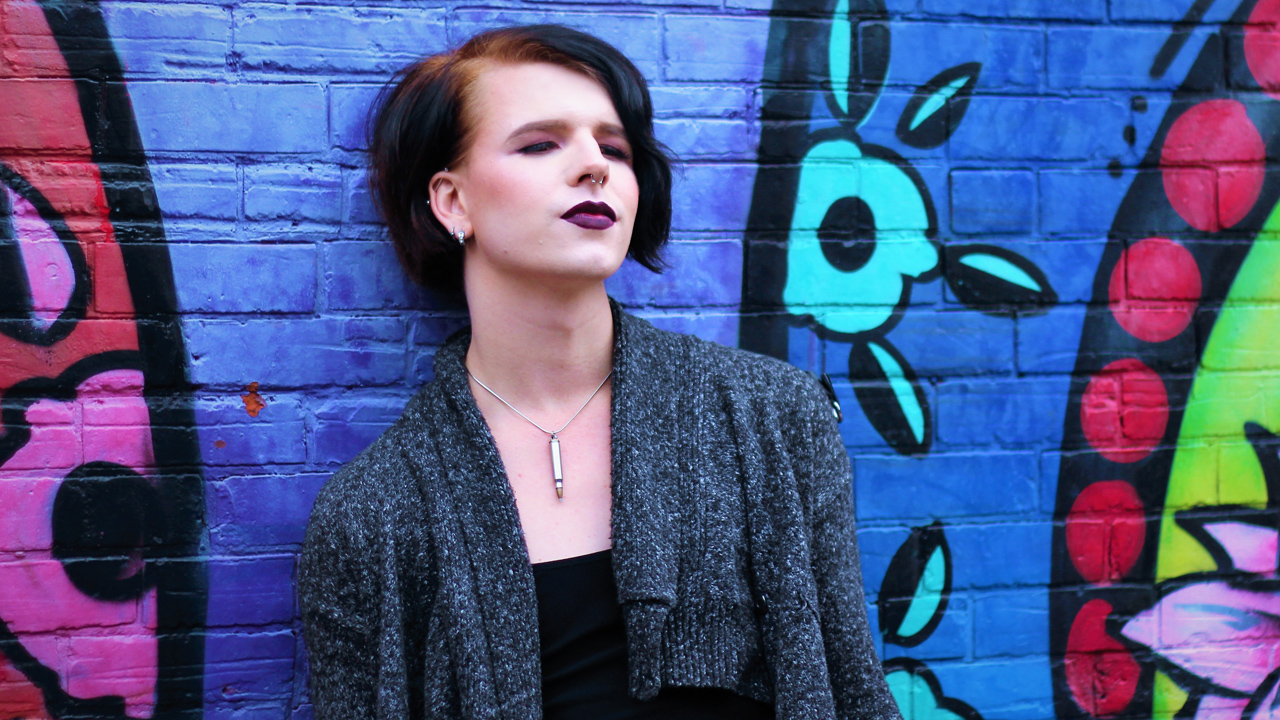
“While I think ‘days of (insert issue)’ are only a means to an end—and that people love to use these days to pay token attention to issues they otherwise ignore, by sending out a quick tweet and moving on from there—there’s nonetheless a benefit to claiming a day for ourselves, a day dedicated specifically to those impacted by misogyny, sexism and gender-based violence. Men get every other day, why can’t we have this one?
“But I think IWD is plagued with the same problems facing many of our movements. We talk about intersectionality but have a hard time doing justice to it. That’s an issue I struggle with and am definitely imperfect at, as, I would say, we all are. But when I think about IWD, I wonder if it’s really a day for all women, or a day for (predominately) cisgender, white, heterosexual and middle-class women. I don’t necessarily see myself, as a transfeminine person, reflected in IWD. I hesitate to attend many IWD events because they might say they’re inclusive of trans people, but will I be the only transfeminine person in the room? Will our inclusion be minimal and tokenistic? Probably.
“If IWD wants to be more effective on behalf of all women, it needs to have a real diversity of women involved, to not only acknowledge how oppression is interconnected and interlocked, but to strive towards an approach that engages with the distinct realities of women at different intersections of oppression. I want to feel like, even if it’s never perfect, IWD is striving to ensure all women benefit from and are reflected in this day of action and celebration.”
Jen Gunter, OB/GYN, writer
“I wish we didn’t need an IWD but, in reality, the other 364 days are men’s days. As long as women earn less than men for the same job, are penalized for pregnancy at work, bear the burden of contraception, are less represented in arts and sciences and every field. As long as ‘manels’ (panels of all men when there are qualified women who are overlooked) exist, then I feel we need a formal way to collectively stand up and shout about what we have achieved given how women have been held back by the patriarchy and to gain strength to continue the fight for equality.
“We need more women in politics, whether that is politics as we know it in public office or leaders at work. I think IWD should focus on that and give women practical tools for getting involved at this level. Whenever I am lecturing and a young woman asks me how she can change things, I say, ‘go into politics.’ We need to be in those rooms.”
Romana Kassam, artist
“It feels unfortunate that we still need a day to bring awareness to the contribution of women, particularly in contrast to the fact that we do not need to do this for men. But honouring women and their work, both seen and unseen, is necessary.
“It’s exciting to see more and more women owning their narratives and creating initiatives and events centred around the female experience. I didn’t have a lot of that growing up. These spaces and conversations are crucial to inspiring young girls especially and igniting important dialogue. So it is super important that we have a day specifically to reflect on and honour the accomplishments of all the incredible women that have come before us; it should be a national holiday!”
Jenn Lofgren, founder of Incito
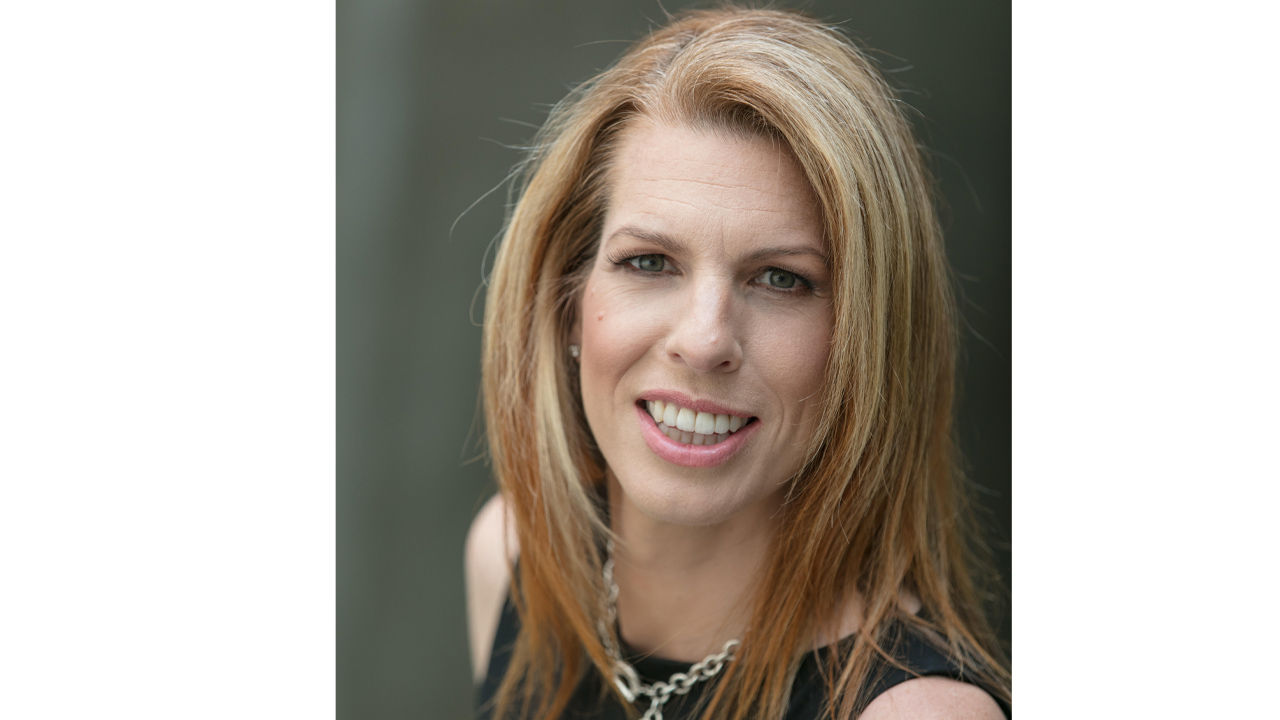
“IWD means that we have more work to do to empower women to pursue their goals. Professionally, that means empowering women to pursue senior and executive leadership roles. In 2020, women’s leadership and mentorship groups have increased, and women are becoming better represented in front-line and mid-management roles. However, I’m not sure that I’ve seen an increase in women leading in executive roles just yet.
“I remember attending a National Geographic Live speaker event with my young daughter a few years ago that featured a woman marine biologist. When the scientist showed a picture of herself on a ship with over 15 men and no other women, my daughter leaned over and said, ‘Do you think I could do that one day?’ It reinforced to me that if you can’t see it, it’s hard to believe you can be it, whether in the science field, leadership or anything else.
“We need men to support women’s causes and address unconscious biases. When women don’t see other women in certain careers, roles or leadership they can’t feel like they don’t belong. We need to call on men to support every woman as mother, sister, daughter, friend and colleague. Inequality affects all of us and making it personal will help us accelerate change.”
Caro Loutfi, executive director of Apathy is Boring

“It’s only when our feminism is truly inclusive that IWD has a real impact. When we talk about women’s rights, we often fail to recognize how varied the fight for justice and equal rights has and continues to be for different women. We must approach this work by acknowledging and appropriately responding to the unique oppression of certain groups.
“We still have too few women in politics, in public office and as CEOs. We still have missing and murdered Indigenous women, girls and two-spirit people. We still have a long way to go and we need everyone involved. We need to think about who is and isn’t and why. A fight for gender equality requires collaboration, allyship and community. We all have a lot of learning and unlearning to do, and listening to and paying attention to who is not showing up is a first step.”
Jessica Lui, tech entrepreneur
“This time is about honouring the women who came before us and fought for gender equality, the women who broke down social, economic and political boundaries, and gave us the room.
“The impact of IWD is based on the conversations that are ignited by it, and build a starting point to bring together different individuals, communities, grassroots organizations and corporations all around the world. Opening this kind of dialogue on a global scale can result in a drive and campaigns for change.
“If you’re privileged and/or have a platform, it’s important to think about who is and isn’t sitting beside you. Think, how do I give marginalized voices a seat at the table? Individually, we need to make sure we champion the causes we care about, that is how we can have maximum impact. We have to take this time to look at where we are and where we want to go.”
Vinsia Maharajah, photographer, mental health advocate
“As a Tamil woman, learning about my ancestors and hearing stories directly from women in different communities (e.g. Indigenous, Black, LGBTQ, Asian and war-affected communities) empowers me, gives me strength and helps me heal. That is a key part of IWD. It’s necessary to have an occasion to reflect on the past. It’s a reminder to keep pushing forward.
“It also creates stronger inter-community bridges, which have a domino effect. Over the years, I’ve noticed a rise in women-centric initiatives, particularly around IWD. Because of these women-centric spaces and days, more initiatives and advocacy happen, both online and offline and, with that, more positive changes happen for communities worldwide. It’s about time women claimed space, regardless of if they’re smaller, specific spaces such as Tamil Women Rising, or entire worldwide movements, such as #MeToo.
“IWD should be by women, for women. It should include initiatives that encourage accessible resources for survivors of abuse, that build safe spaces, that are more trans-inclusive and less heteronormative; a vulva/vagina is not a symbol of being a woman. Resilience, perseverance, brilliance and strength are our true elements.”
Mina Mawani, CEO of Crohn’s and Colitis Canada
“As refugees in the 1970s, my family built a life in Canada from nothing. I grew up understanding the importance of working hard to achieve my goals and also the importance of giving back to our communities. Growing up and watching my mother regret not having the opportunity to get an education highly motivated me to support and empower women, particularly newcomers and young girls. I understand their struggles and am always looking for ways to bring their voices, strengths and talents to the forefront; on IWD, and every day, that is my job. I strongly believe that women need to be provided with opportunities and that diversity leads to greater innovation.
“But while a lot of progress has been made there is more work to be done to support getting women in leadership positions, particularly in underserved fields. Here in Canada, for example, there are still not enough women, especially visible minority women, in executive and board positions. Fortunately, we live in a democratic nation which values equality, freedom and respect for all individuals in society; women here do have opportunities that are not afforded to them in other countries. It is that inequality that makes IWD so important.”
Tina Yeonju Oh, environmental activist
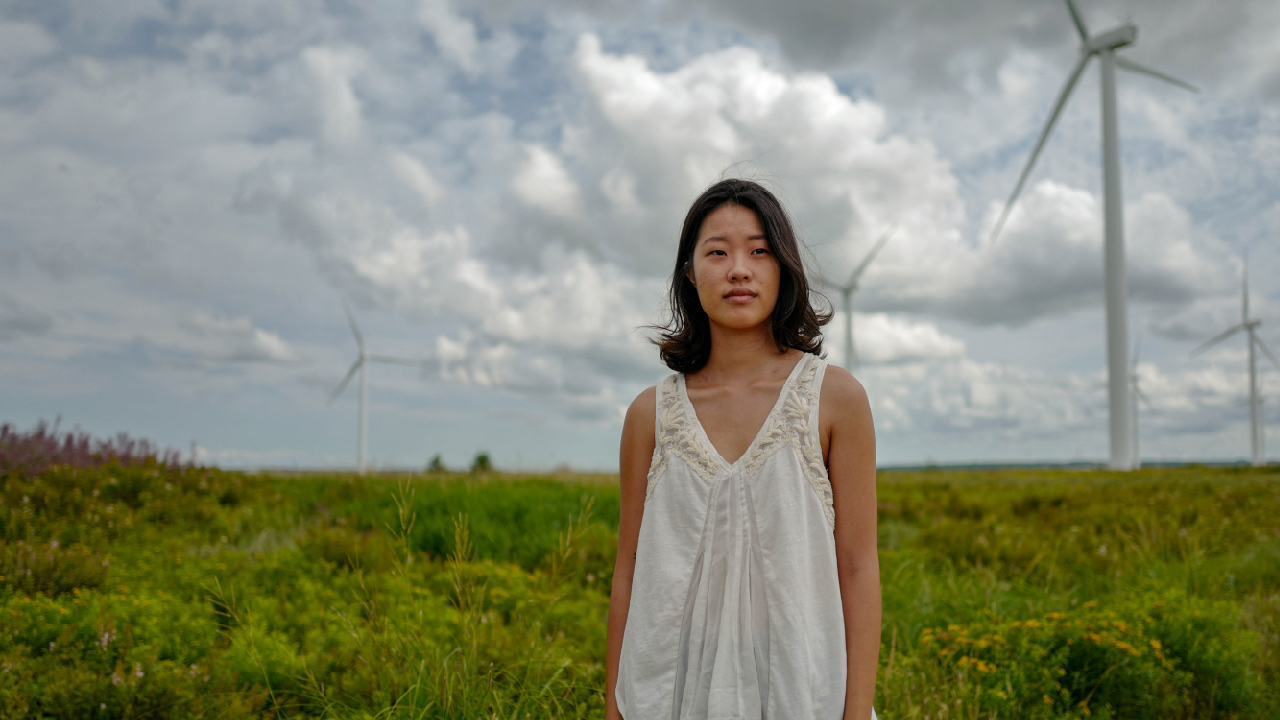
“Like virtually every other holiday, each year Big Brands capitalize IWD as a profit-making machine. We see wealthy corporations make flashy statements about celebrating women—gaining social capital as an ethical brand—while treating their (women) workers poorly. These corporations must perform concrete actions that demonstrate their ongoing contributions to gender equality and justice, whether via monetary donations to community-based projects or services that further gender justice or inclusive internal policies that hire and provide support to marginalized workers.
“As of now, in our capitalist world, IWD upholds dominant and liberal narratives of gender equality. It has erased the significant movement history on these lands and globally that have been rigorously organized, championed and won by trans-women, poor women, queer women, disabled women, Black women and Indigenous women. I believe in the importance of celebration, pride, self and mutual love for women and their labour in our communities, but until the dominant society is willing to loudly celebrate all these women, as well as addressing the injustices they continue to face, I’m unconvinced of the just impact of IWD.”
Pamela Palmater, Mi’kmaq lawyer, professor, journalist
“IWD is a chance to celebrate all of the powerful Indigenous women who have laid down the path for social justice in First Nations, Canada and internationally. Their hard work and determination have resulted in greater awareness about the grave human rights abuses against Indigenous women and their advocacy has resulted in legislative and policy changes at the government level. Indigenous women like Mary Two-Axe Early, Jeannette Corbiere-Lavell, Yvonne Bedard, Sandra Lovelace, Sharon McIvor, Cindy Blackstock and Ellen Gabriel; and Indigenous girls like Shannon Koostachin and Autumn Peltier, and many others, have inspired the next generation to assume those leadership roles to ensure a better future for our children. We now see Indigenous women and girls leading the way on defending their lands and waters from environmental destruction and advocating globally for real action on climate change. IWD can amplify those voices and make a real change for them and the world around us.
“It is important to mark the occasion publicly because it serves as a reminder to take a look at where we are—locally and globally—on core human rights for Indigenous women. We now know through the National Inquiry into Murdered and Missing Indigenous Women and Girls that Canada is guilty of both historic and ongoing genocide against Indigenous women and girls. We know that Canada both created and maintains a complex set of laws, policies and practices that have targeted Indigenous women for abuse, exclusion and dispossession. There has been little response to our calls for a transitional justice plan to end genocide against Indigenous women and girls and IWD gives us an opportunity to renew those calls. IWD can work with grassroots Indigenous women and communities to find ways to highlight their struggles and their successes.”
Heather Payne, CEO of Juno College of Technology

“IWD has always made me groan and I generally prefer to avoid the whole thing. For a lot of people and companies, IWD seems like an opportunity to check a box; ‘Yup, we celebrated International Women’s Day, guess we’re good in terms of advancing women this year!’ Celebrating women for one day is problematic if you’re not willing to do the work to change systems that oppress, exploit and disrespect women the other 364 days of the year.
“It’s also just too broad—it celebrates all women, which means it celebrates none of us. Most IWD celebrations fail to consider the intersectionality of race, class, sexual orientation, gender identity, etc. Just because we identify as women doesn’t make our stories the same—women do not all face the same challenges. As a straight cisgender white woman, I have so much privilege. I don’t need or deserve a special day, yet I seem to be exactly the target of most IWD celebrations.
“Here’s my ask for IWD 2020: With an open mind, ask women about the challenges they face in their lives. Make sure they identify as being different races, ages, socioeconomic classes, sexual orientations and gender identities. Ask questions, and listen. You’ll learn about some of the real challenges women face, and then you can spend the next 364 days helping to move things forward. And if you don’t have a diverse group of women in your life, the first question to ask is why.”
Jess Tetu, entrepreneur, philanthropist
“It is because of the support of my sisters that I am the woman I am today. IWD is a day that reminds women all over the world to stand together united, to recognize how far we have come, and to embrace those sisterhoods.
“As women we need to continue to recognize our values and embrace our differences. IWD provides women a day to remember how far we have not only come, but how far we still need to go. We have come a long way in Canada, but our sisters across the world need our voices to be heard on their behalf. Our daughters, and the women of our future, deserve better. Together, we can change the future for them and the trajectories of who they will become.”


